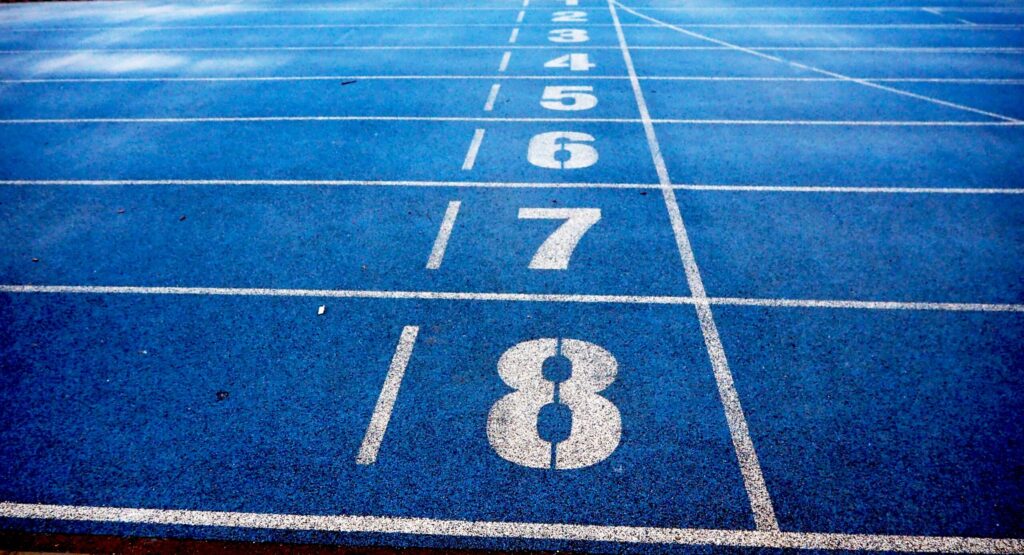Am I Learning Fast Enough?
It is tempting as a teacher to always respond to this question with “Yes”. I have found that people these days seem to be notoriously hard on themselves and are terrible at accurately assessing their own progress—I certainly have seen this in myself. It is difficult to view progress subjectively because with learning comes a greater awareness of what you don’t know. This continually expanding knowledge of what is possible can even give you the sense that you’re getting further from some imagined destination rather than closer to it.
Yet it is not an unfair thing to assess one’s progress as it can give a view into the effectiveness of your training. To do so fairly requires that you first have a few things in place.
Goals and Measures
Objective Goals
If you are truly interested in how you are doing you can’t rely on your ‘feelings’ of how you are doing. Here are a few types of objective goals to consider:
- Progress within a defined curriculum.
Our school has a checklist of techniques, and described requirements for ability in those techniques, for each level. Your progress along the list can be used to assess your progress. Use an established curriculum or define your own. - Physical Conditioning Metrics.
Whether it’s doing N pushups or N cuts within a given timeframe, these types of metrics can help you understand the progress of your physical development. - Combative Success
I don’t recommend setting ‘winning’ goals for objective measurement as there are often too many factors in play for that kind of measure to be effective, especially in the early stages of your training. Instead, I recommend setting goals based on the application of particular techniques or principles within a combative environment. How many times were you able to effectively conduct a given technique? Are you capable of maintaining structure during a particular length of bout? How long were you able to maintain a relaxed psychology?
Measurement
Now that you have some measurable goals in place you need to start measuring them on a useful interval. If your goals are easily measurable it can be satisfying, in some cases, to measure them weekly. Having worked on increasing the number of pushups I can do, I enjoyed using a push-ups app that let me see my progress—gradual as it was—from week to week. Once you have measured your goals a few times then you have truly begun to create an objective picture of your progress.
A Warning on Metrics
Be mindful that metrics are difficult tools for assessing the deeply complex process of mastering a martial art over the long-term. I have certainly had long periods of no apparent objective progress that broke way for rapid and significant growth, that I have no doubt was the result of the long gestation period that had occurred before.
What To Do With Data?
Once you have a clearer picture of your progress you can start to more accurately assess the rate of your learning.
Set Appropriate Expectations
One thing I am regularly doing with my students is helping them set appropriate expectations for their learning. If you are attending one two-hour class per week, what can be accomplished, and the timeframe for that accomplishment, will be far different than if you are attending three or four classes per week and have a daily practice regimen.
Not everyone can dedicate their lives to learning an art, you need to set the schedule that fits into your life. Then set the expectations appropriate to that training regimen. I recommend working with an experienced practitioner to determine what is possible and appropriate. I think we all fall prey to setting objectives based on fanciful notions rather than accurate reality.
Be Realistic But Not Constrained By Your Limitations
It is essential that you be at peace with where you are as a physical being and as a learner. If you are rehabilitating an injury, developing coordination for the first time, or have a learning disability, you need to be realistic about the place from which you are working. Do not let this limit your potential. I sincerely believe that with purposeful and guided practice most can achieve a truly meaningful level of mastery. However, setting goals or strategies that do not acknowledge your limitations is a surefire way to at best create continual disappointment, and at worst create injury.
Be honest and compassionate with yourself. Then get smart about your learning strategy and go kick ass.
Create and Assess Your Learning Strategy
The nature of your goals, the stage in your learning, any limitations you may have, and your access to resources will all influence how you should be approaching your learning at any given time. If you are goal oriented, work with an experienced teacher to help you create an approach for meeting them that fits your circumstances. If you are not progressing sufficiently (and reasonably!) toward those goals, then reassess your learning strategy (with help) before determining that you have some intrinsic barrier to learning.
Be Both Persistent and Flexible
Recently when working on increasing my physical strength I hit a plateau for several weeks in a row. After consulting with a trainer I determined that my barrier to further objective progress was to do with limitations in my structure and connective tissue. With their help I made some adjustments to how I was doing my exercise. At first my results declined. However, within a few weeks of persistent exercise, in the new areas, I returned to my plateau level and then beyond it.
It’s important in learning to find the balance between stubborn and schizophrenic. Some results take time to achieve, so don’t give up on the first sign of trouble. However, don’t keep running at the same barrier and expect different results. Before giving up, change tacks and adjust your strategy. The reality is that no strategy will be eternally applicable to your journey. You must develop a large kit of learning tools to pursue mastery.
What’s Really Important?
In our increasingly progress oriented culture we can feel compelled to set objectives for everything that we do. However, this sometimes misses the point. So much of what I have gained for myself out of my pursuit of martial arts has been deeply internal: a sense of peace and connection, a stability and groundedness in my life, deep and lasting friendships, a rhythm and purpose in times of chaos and challenge, amongst so many other things. Are these things not enough?
Goals and objectives are my tools on the journey of mastery—they are not my master. If goals aren’t suiting you, if they are not guiding you toward fulfillment, then change them, put them on hold, or abandon them completely. This is your journey, for you, no outside observer or objective measure is required to give that value.
Whew! Glad I got that off my chest. I’d love to hear your thoughts on these things in the comments.
Devon
June Instructor Intensive Graduates
Congratulations to the graduates of Academie Duello’s June instructor intensive! They each completed a week-long, 50-hour intensive in Italian Rapier, Longsword, and learning methodology. They then participated in four post-intensive exams to test and develop their knowledge further. Grad certificates have just gone out certifying these stalwart folks to be level 1 instructors in Academie Duello’s system! This certification allows recipients to facilitate an official Academie Duello study group and to enter instructor apprenticeship toward becoming a level 2 instructor. It takes a lot of persistence and resilience to achieve this first level. Well done everyone!
Learn more about our program and what’s involved here: http://www.academieduello.com/school/workshops/instructor-training/




Responses